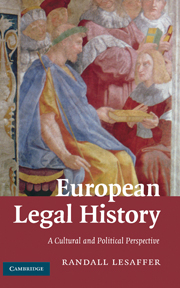7 - Voluntas (the Post-Modern Age, 1914–2004)
from Epilogue
Published online by Cambridge University Press: 15 August 2019
Summary
The end of modernity
Now that we are almost settled in our house
I'll name the friends that cannot sup with us
Beside a fire of turf in th'ancient tower
And having talked to some late hour
Climb up the narrow winding stair to bed.
Discoverers of forgotten truth
Our near companions of my youth
All, all are in my thoughts tonight being dead.
The First World War and the challenge to modernism
When the war broke out in August 1914, the Anglo-Irish romantic poet William Butler Yeats (1865–1939) was too old to sign up. While Yeats himself escaped the horrors of the western front, he saw how a generation of young men was decimated on the battlefields of the Great War. When the armistice was declared on 11 November 1918, the war had claimed more than ten million lives. In the next few years, millions of people were to perish from hunger, disease, enfeeblement, civil war and outright genocide, particularly on Europe's eastern fringes.
The First World War sent a psychological shockwave through Europe, overturning the certainties of the intellectual, economic and political elites. The war affected Europe to its core. The decades either side of the turn of the century marked the high point of modern, European civilisation. Since human reason had liberated itself from all kinds of oppression, science and technology had taken off. The natural world appeared to have few if any secrets left to reveal. The invention of the telephone, radio and aeroplane vindicated man's claims to be master of creation. Industrialisation brought unparalleled wealth and enabled Europe to conquer the world. Europe itself experienced a lengthy period of relative peace. In due course, science would fully reveal the workings of the human mind and would render human behaviour predictable and controllable. In the meantime, new horrors, such as that of the Terror and the Napoleonic Wars, were totally ruled out in the age of reason.
The First World War (1914–18) brutally and unexpectedly put an end to this dream. To the informed observer, the outbreak of war in the summer of 1914 will not have come as a total surprise, but no one could have foreseen that the war would prove to be so protracted and bloody.
- Type
- Chapter
- Information
- European Legal HistoryA Cultural and Political Perspective, pp. 483 - 520Publisher: Cambridge University PressPrint publication year: 2009



